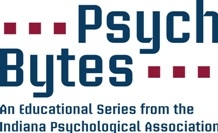Complicated grief (CG), also known as Persistent Complex Bereavement Disorder, is currently housed under Conditions for Further Study in the DSM-5. Although CG is not an official DSM-5 diagnosis, there is considerable evidence that complicated grief is a specific syndrome that is different from normal grief and other mood and anxiety disorders. An individual with complicated grief experiences intense yearning or longing for the person who died, intrusive or preoccupying thoughts or images of the deceased person, a sense of loss of meaning or purpose in a life without the deceased, and a cluster of other symptoms that interfere with activities or relationships with significant others. These symptoms can include incessant questioning, worrying, or ruminating over some aspect of the circumstances or consequences of the loss. Those with CG can experience relentless feelings of guilt, envy, bitterness, or anger. They may excessively avoid reminders of the loss and/or compulsively seek proximity to the one they lost.
To learn more, visit the Center for Complicated Grief at
https://complicatedgrief.columbia.edu.
Contributor:
Heather M. Chik, PhD, HSPP
Anxiety & OCD Behavioral Health Center
"PsychBytes” is a weekly educational resource from the Indiana Psychological Association (IPA) provided for psychologists, their colleagues and their patients.
